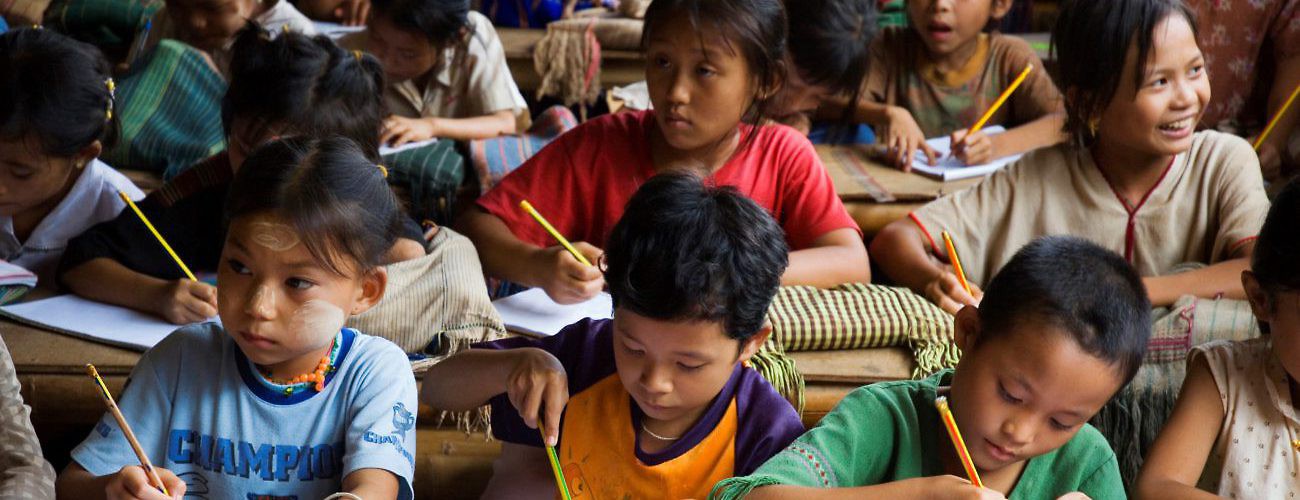Karen refugee children pay attention during a first-grade math class in Mae La Oon refugee camp, June 21, 2006. (UNHCR/J. Redfern)
Over the last five years Myanmar has gone through fundamental changes as it transitions toward peace and democracy. This transformation provides Myanmar with a unique opportunity to build a peaceful and inclusive society and advance on the path to sustainable development and sustaining peace. Yet at the same time, Myanmar remains submerged in conflict and lacks national consensus on the future of the state.
Achieving the 2030 Agenda in Myanmar will therefore require an inclusive and conflict-sensitive approach that takes into account the views not only of the central government but also of ethnic-minority groups. Based on an eighteen-day field study in Myanmar in 2017, this paper examines the country’s progress toward sustainable development and sustaining peace from these divergent perspectives.
This paper, co-funded by the Fafo Research Foundation, is part of the International Peace Institute’s (IPI) SDGs4Peace project, which seeks to understand how the 2030 Agenda is being rooted at the national and local levels and to support the implementation of the Sustainable Development Goals. The project focuses on five case studies: the Gambia, Greece, Guatemala, Lebanon, and Myanmar. Implementation of the 2030 Agenda provides each of these countries an opportunity not only to buttress existing aspirations but also to build new partnerships that transcend traditional approaches.








